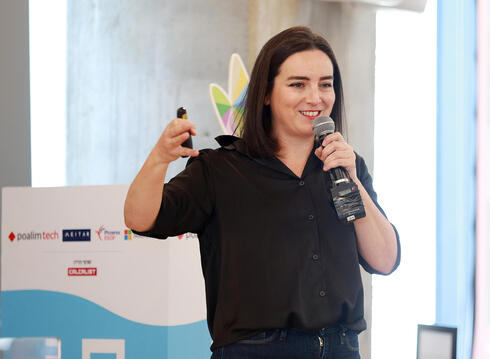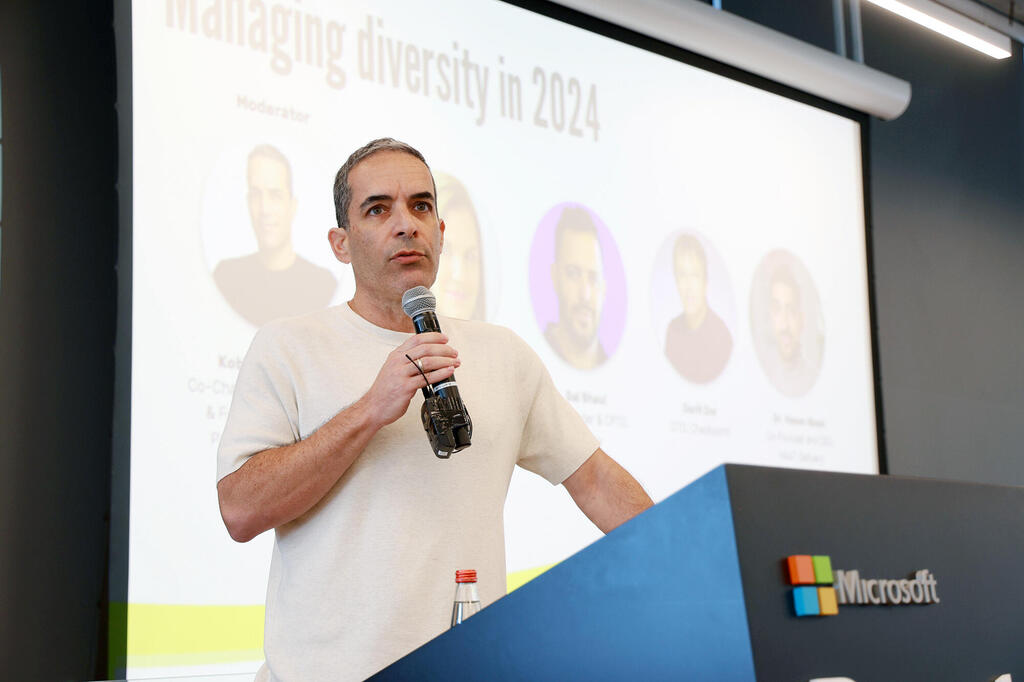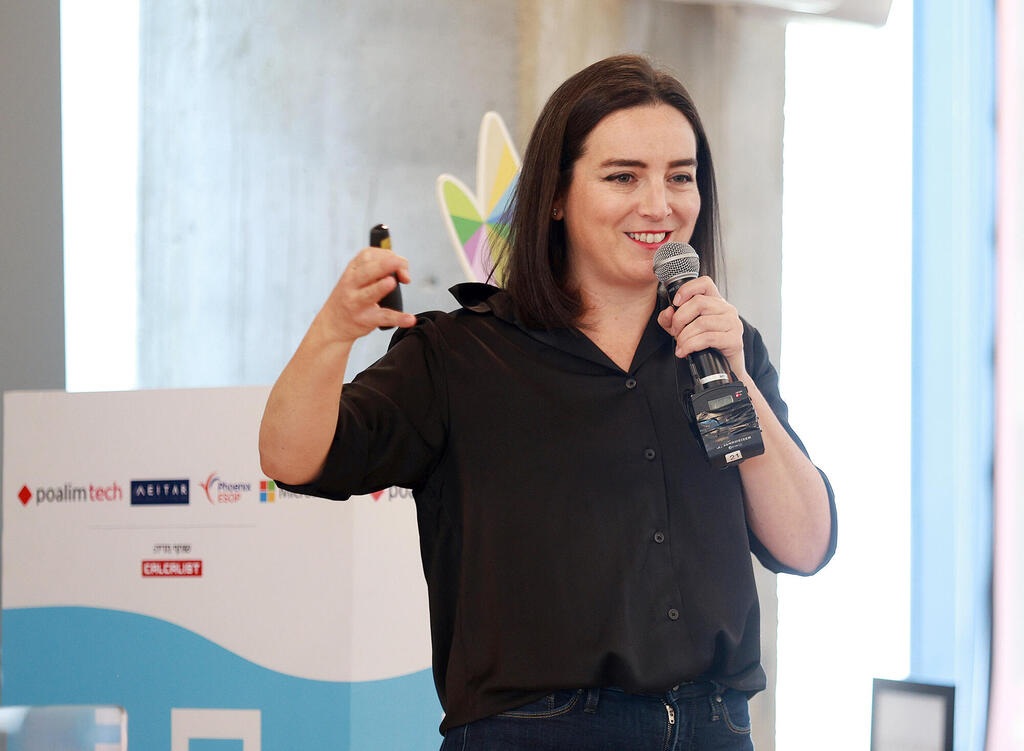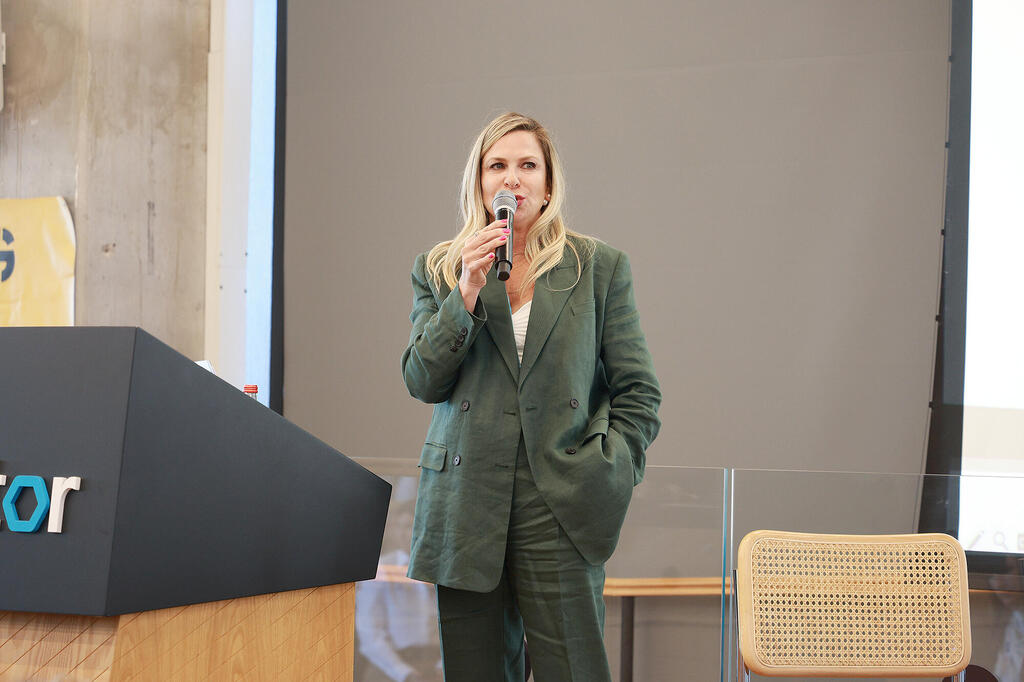
"Diverse companies and organizations are more profitable, stable, creative, and fair"
Michal Kissos Hertzog, CEO of Poalim Tech, was speaking at the Power in Diversity conference. Sivan Shamri Dahan, co-chair of Power in Diversity and a Managing Partner at Qumra Capital, said: "It is clear to everyone in this room that the responsibility to rebuild is on our shoulders, and that Israel's economic recovery will come from its high-tech sector."
"Diverse companies and organizations are more profitable, stable, creative, and fair," said Michal Kissos Hertzog, CEO of Poalim Tech, at the Power in Diversity conference held on Wednesday at the Microsoft offices in Tel Aviv. According to Kissos Hertzog, "Women earn 55 cents for every dollar a man earns, and less than a third of the world's wealth is in the hands of women, with half of it in the U.S."
"When a female banker comes up to speak, the expectation is that she will talk about high-tech credit or banking products, but I want to discuss something else—a small mini-transformation," Kissos Hertzog said in her opening remarks at the conference. She shared an insight she recently gained after watching a TV series: "I sat and watched a new series, The Franchise, where one of the male producers calls the female producer and tells her that 'we have a problem with women' and essentially wants her to write a series for him that is entirely about women—for all the wrong reasons."
According to her, while there are many advantages to diversity—such as profitability, stability, and increased creativity—most companies pursue it merely to "check a box" for adequate representation. "They do things for all the wrong reasons, just like that producer in the series who didn’t want his film to be boycotted or face bad PR," she stated.
Kissos Hertzog presented disturbing data from OECD studies, revealing that only 60% of women participate in the workforce (in part because managing a household is not defined as work at all), compared to 77% of men. "In Israel, there are only 25 female legislators and zero women in the cabinet. This reflects a power balance that is biased towards a certain gender," she noted. She added, "In the current situation, it will take 257 years to close the gender gap."
Kissos Hertzog emphasized, "Studies show that to close the gap, we must choose to act in ways that are a little more aggressive and more forceful. More radical laws must be enacted, and there needs to be much more significant enforcement and aggressive transparency—these measures will compel decision-makers to change because they will have to do so."
She concluded, "Maybe it's okay that the path is not the most aesthetic and proper if, in the end, it leads to the right result. If we can get women to influence decision-making, then so be it. While the path is important, the result is paramount. Waiting 257 years is not reasonable."
Sivan Shamri Dahan, co-chair of Power in Diversity and Managing Partner at Qumra Capital, commented on the country’s special situation: "October 7th forced all of us to leave the relatively safe and comfortable space of high-tech and mobilize." She noted, "There are startups where 30% of their personnel are serving in the IDF reserves, and there are companies whose CEO was in Gaza for many days without contact while the business continued to operate, with other employees stepping in to fill vacant roles."
Shamri Dahan added, "We have all been there for the families of the abductees, for the survivors of the Nova attack, and for the evacuees from the north and south. The high-tech sector played a significant role in the early days and continues to play a vital role in the military, in raising funds for soldiers and civilians, in supporting towns, and in the treatment of trauma victims." According to her, "It is clear to everyone in this room that the responsibility to rebuild is on our shoulders, and that Israel's economic recovery will come from its high-tech sector."
3 View gallery


Kobi Samboursky, co-chairman of Power in Diversity and a partner in Glilot Capital
(Photo: Avigail Uzi)
Kobi Samboursky, co-chairman of Power in Diversity and a Managing Partner at Glilot Capital, spoke about the establishment of the initiative seven years ago: "We founded Power in Diversity with the belief that our industry must engage with issues beyond capital production. We believed that the industry should be more inclusive and connect with wider populations. The last few years, and especially the past year, have shown us how true this is. We haven’t achieved everything we wanted, and not everything is ideal; there is still much work to do, but it stands as an island of sanity in an otherwise insane reality."















